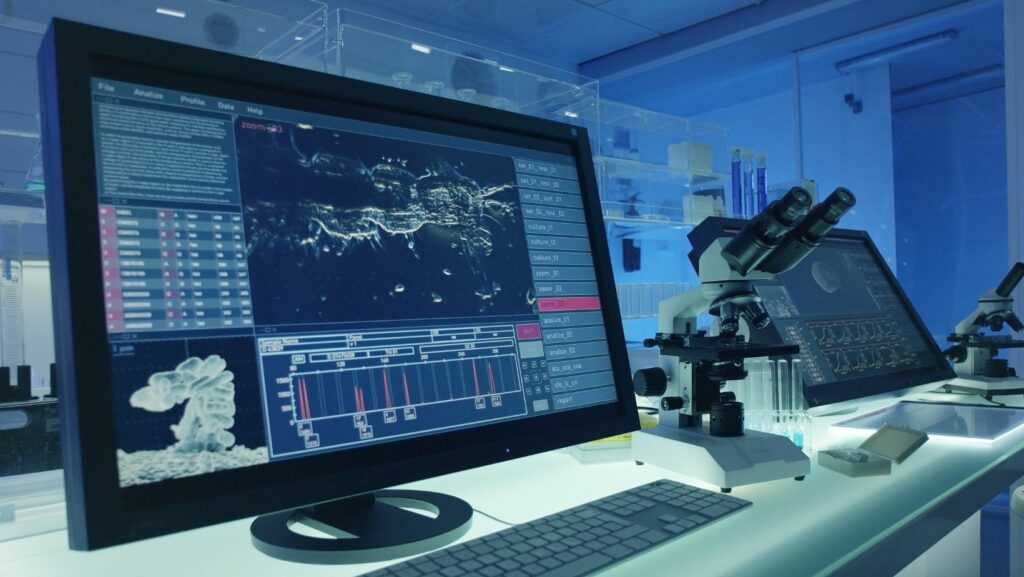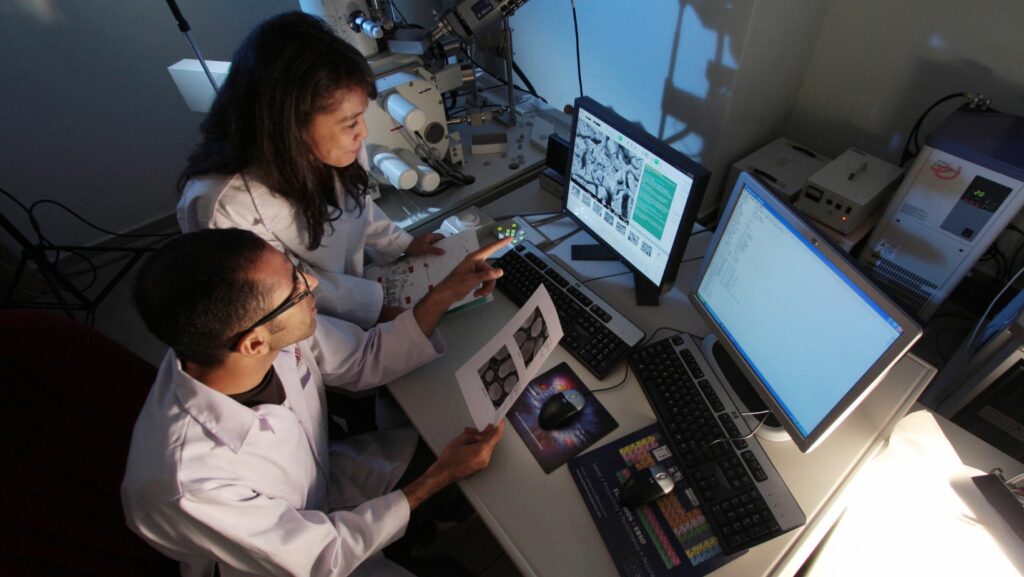Key Takeaways
- Distinct Focus Areas: Industrial engineering emphasizes optimizing complex systems and processes, while computer science concentrates on algorithms, programming, and software development.
- Educational Pathways: Both fields provide unique degree programs, ranging from bachelor’s to doctorate levels, tailored to their respective focuses and career requirements.
- Diverse Career Opportunities: Graduates from both disciplines can pursue various job roles; industrial engineers may work in manufacturing and quality assurance, while computer scientists often engage in software development and data analysis.
- Essential Skills: Both fields necessitate a mix of technical and analytical skills, including data analysis and software development for computer science, and process improvement and project management for industrial engineering.
- Innovation Impact: Both disciplines play a vital role in driving innovation across industries, adapting to new technologies and methodologies to enhance operational efficiency and technological advancement.
- Strategic Decision Making: Understanding the core differences and educational requirements between industrial engineering and computer science helps students align their interests with career goals effectively.
In today’s rapidly evolving technological landscape, choosing the right field of study can feel overwhelming. Industrial engineering and computer science stand out as two dynamic disciplines that shape industries and drive innovation. Each offers unique opportunities and challenges, making the decision between them crucial for aspiring students.
Industrial engineering focuses on optimizing complex systems and processes, blending engineering principles with business acumen. On the other hand, computer science dives deep into programming, algorithms, and software development, playing a pivotal role in the digital age. Understanding the core differences between these fields can help individuals align their passions and career goals with the right educational path.
Industrial Engineering vs Computer Science
 Industrial engineering focuses on optimizing complex systems and processes within various industries. It combines engineering principles with mathematical and scientific methods to improve efficiency and productivity.
Industrial engineering focuses on optimizing complex systems and processes within various industries. It combines engineering principles with mathematical and scientific methods to improve efficiency and productivity.
Industrial engineering defines the study of how to design, improve, and implement integrated systems of people, materials, information, equipment, and energy. The scope includes manufacturing processes, supply chain management, quality control, and operations research. Industrial engineers apply techniques like simulation, statistical analysis, and human factors engineering to enhance system performance.
- Analyzing systems: He or she evaluates existing processes to identify inefficiencies and propose solutions.
- Designing workflows: They create optimal workflows that maximize productivity and minimize costs.
- Implementing technology: He or she integrates advanced technologies, such as automation and data analytics, to modernize operations.
- Ensuring quality: They establish quality assurance protocols to maintain high standards in products and services.
- Managing projects: He or she oversees projects to ensure timely delivery, budget adherence, and stakeholder satisfaction.
Overview of Computer Science
 Computer science encompasses the study of algorithms, programming languages, software development, and the principles of computation. It plays a critical role in technology and innovation across multiple sectors. Computer science is defined as the systematic study of computation, automata, and information systems. The scope includes theoretical foundations, practical applications, and the intersection of hardware and software. It covers areas such as artificial intelligence, cybersecurity, data science, and human-computer interaction. Computer scientists develop solutions to complex problems through algorithm design, programming, and software engineering.
Computer science encompasses the study of algorithms, programming languages, software development, and the principles of computation. It plays a critical role in technology and innovation across multiple sectors. Computer science is defined as the systematic study of computation, automata, and information systems. The scope includes theoretical foundations, practical applications, and the intersection of hardware and software. It covers areas such as artificial intelligence, cybersecurity, data science, and human-computer interaction. Computer scientists develop solutions to complex problems through algorithm design, programming, and software engineering.
- Programming Applications: Writing, testing, and maintaining code for software applications.
- System Design: Creating architectures for computer systems and networks.
- Data Analysis: Collecting, processing, and interpreting large datasets.
- Software Development: Building applications that address user needs and improve operational efficiency.
- Research: Exploring new theories and technologies to advance the field of computation.
- Cybersecurity: Implementing strategies to protect systems and data from cyber threats.
Comparing Educational Pathways
Understanding the educational pathways for industrial engineering and computer science reveals distinct degree programs that cater to each field’s unique focus.
Degree Programs in Industrial Engineering
Degree programs in industrial engineering typically include Bachelor of Science in Industrial Engineering, Master of Science in Industrial Engineering, and Doctorate in Industrial Engineering.
- Bachelor of Science in Industrial Engineering: This four-year program covers fundamentals such as systems engineering, operations research, and manufacturing processes. Students often engage in practical projects and internships.
- Master of Science in Industrial Engineering: This program usually requires one to two years of postgraduate study, focusing on advanced topics like supply chain management, production planning, and quality systems. Thesis or capstone projects are common components.
- Doctorate in Industrial Engineering: This program, which takes an additional three to five years, emphasizes research and theory. Students contribute original research to areas like human factors engineering or advanced simulation methods.
Degree Programs in Computer Science
Degree programs in computer science include Bachelor of Science in Computer Science, Master of Science in Computer Science, and Doctorate in Computer Science.
- Bachelor of Science in Computer Science: This undergraduate program spans four years, covering core areas like algorithms, programming languages, and software engineering. Students incorporate hands-on coding projects and team-based software development.
- Master of Science in Computer Science: This postgraduate program typically lasts two years, offering specialization in areas such as artificial intelligence, data science, or cybersecurity. Students complete research or practical projects that enhance their technical skills.
- Doctorate in Computer Science: This advanced degree requires three to six years of study, focusing on deep research contributions to computing theory, complex systems, or innovative technology. It culminates in a dissertation that significantly advances knowledge in the field.
Career Opportunities
Both industrial engineering and computer science offer diverse career paths with unique job roles and responsibilities.
Job Roles in Industrial Engineering
Industrial engineers occupy roles focused on optimizing systems and processes within organizations. Common positions include:
- Manufacturing Engineer: They design, implement, and improve manufacturing processes, ensuring high efficiency and quality.
- Quality Assurance Engineer: They analyze and test products and processes to meet quality standards, reducing defects and waste.
- Supply Chain Analyst: They oversee supply chain operations, optimizing logistics, inventory management, and procurement strategies.
- Operations Research Analyst: They utilize mathematical modeling and analytics to solve complex operational problems and improve decision-making.
- Project Manager: They lead projects involving resource allocation, scheduling, and budget management to achieve organizational goals.
Job Roles in Computer Science
Computer scientists focus on technology and systems development, handling tasks centered on software and data. Key roles include:
- Software Developer: They design, code, and test software applications, ensuring functionality meets user requirements.
- Data Scientist: They analyze complex datasets to extract insights, guiding decisions in various business domains.
- Systems Analyst: They evaluate and improve IT systems, ensuring alignment with business needs and advising on technology solutions.
- Cybersecurity Analyst: They protect systems and networks from security breaches, implementing defenses and responding to incidents.
- Machine Learning Engineer: They develop algorithms and models for intelligent systems, enabling machines to learn from and make predictions on data.
Job opportunities in both fields demonstrate potential for growth and innovation, catering to emerging technologies and methodologies.
Skills Required
Both industrial engineering and computer science require a specific set of skills to succeed in their respective fields. These skills encompass technical abilities and analytical competencies vital for addressing complex problems.
Technical Skills in Industrial Engineering
- Data Analysis: Industrial engineers utilize statistical tools and data analysis techniques to identify inefficiencies and improve processes.
- Simulation Software: Proficiency in simulation software, such as AnyLogic or Arena, helps in modeling complex systems to predict outcomes and optimize performance.
- Lean Manufacturing: Understanding principles of lean manufacturing, including waste reduction and continuous improvement, is crucial for enhancing operational efficiency.
- Process Improvement: Mastery of methodologies like Six Sigma enables identification and elimination of defects in manufacturing processes.
- Project Management: Skills in project management, including budgeting and scheduling, support the successful execution of engineering projects.
- Programming Languages: Knowledge of various programming languages, such as Python, Java, and C++, is essential for software development and algorithm implementation.
- Database Management: Understanding database systems, including SQL and NoSQL, allows computer scientists to manage and analyze large datasets effectively.
- Software Development: Proficiency in software development methodologies, like Agile and DevOps, aids in delivering high-quality software products.
- Web Development: Skills in HTML, CSS, and JavaScript are essential for creating dynamic websites and user interfaces.
- Cybersecurity Fundamentals: Knowledge of cybersecurity principles ensures the protection of information systems from threats and vulnerabilities.
Choosing between industrial engineering and computer science requires careful consideration of personal interests and career goals. Each field presents unique opportunities and challenges that cater to different skill sets and aspirations. Industrial engineering focuses on optimizing processes and systems across various industries while computer science dives deep into programming and technology development.
Both disciplines are vital in today’s rapidly evolving job market. They offer promising career paths and the chance to contribute to innovative solutions. Ultimately, aligning one’s passion with the right educational path will pave the way for a fulfilling and successful career in either field.



